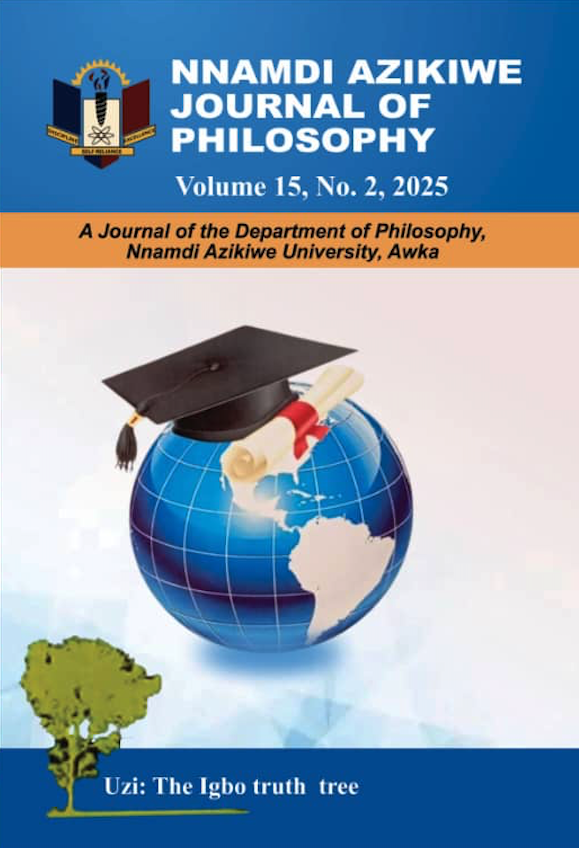AKINPELU’S POSTULATIONS ON EDUCATION: IMPLICATIONS FOR SOCIAL CHANGE AND RESOLVING HUMAN PREDICAMENTS IN CONTEMPORARY NIGERIA
Abstract
This paper is a reconstructive study of Akinpelu‘s postulations on education and implications for social change and resolving human predicaments in contemporary Nigeria. It begins by defining the key concepts that underlie the study, namely: existentialism, social change, human predicaments, freedom, authenticity and inauthenticity. The paper reveals that the contemporary Nigerian socio-economic and political milieu portrays a dysfunctional system. This scenario is characterized by such existential predicaments as corruption, poverty, banditry, diseases, kidnappings and conflicts, among other absurdities. Against the background of this gloomy narrative, the work recognizes that the educational philosophy of Jones Akinpelu might be the panacea needed if the county must halt the speed with which she is plunging towards a state of anarchy. The central argument of the paper is that, for Akinpelu, the educand is an autonomous being who is capable of taking decisions that have the tendency of positively impacting his/her life and social milieu. So, it is the responsibility of the school and the classroom teacher to provide an enabling learning environment that will help the individual learner to fully maximize his/her potentials. According to Akinpelu, if the school is able to effectively carry out this task; then, the contradictions which characterize contemporary Nigeria will gradually dissipate. The paper adopts the hermeneutic narrative methodology.


